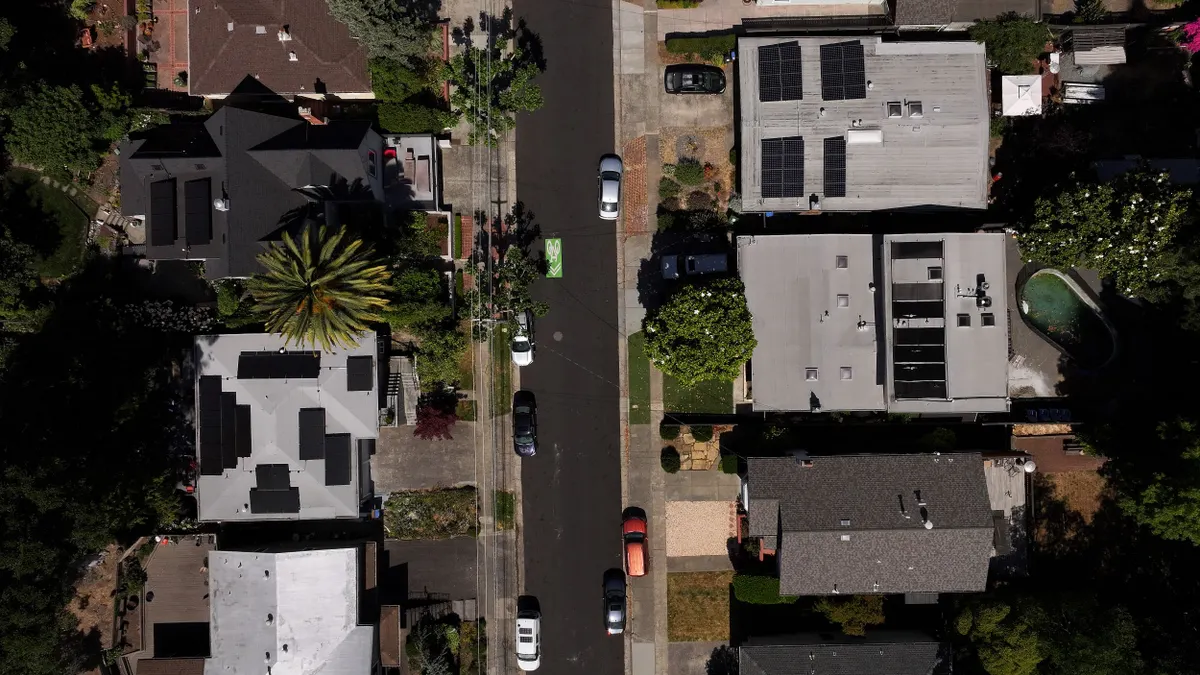Dive Brief:
- The U.S. Supreme Court heard oral arguments on Wednesday in what is likely the highest-profile energy court case of 2015: the fight over the Federal Energy Regulatory Commission's (FERC) Order 745 and the commission's jurisdiction — or lack thereof — over retail demand response in wholesale markets, E&E Publishing reports.
- The D.C. Circuit Court vacated the order last year. Arguments focused on whether FERC "reasonably concluded" it has authority over demand response markets, and whether the circuit court erred in its decision to invalidate that authority.
- The Electric Power Supply Association (EPSA), the trade group for competitive power suppliers, challenged FERC's rule, claiming the commission overstepped its bounds with Order 745 and was regulating retail markets, which fall under state jurisdiction.
Dive Insight:
Supreme Court justices heard the oral arguments today over FERC's controversial case regarding demand response. They are expected to reach a decision in June, E&E Publishing reports.
During arguments, Justice Anthony Kennedy said it is clear that wholesale and retail markets affect each other but questioned where to draw the line. Chief Justice John Roberts also suggested a boundary is needed to curtail FERC from growing past its regulatory reach.
Donald Verrilli, the solicitor general representing FERC said he was fine with the court establishing boundaries, but argued FERC stayed within its authority in this case.
Paul Clement, the attorney representing the opponents, argued otherwise. He said FERC's order was out of bounds on the retail side.
The case sprouted from a 2011 commission order setting rules and compensation for demand response resources in wholesale energy markets. The agency ordered energy markets to pay demand response resources the same market price paid for generation, assuming the demand response resource is economical.
Opponents, led by generators who have the most to lose, claimed FERC overstepped its jurisdiction when it started regulating demand response at the retail level.
"FERC has no more jurisdiction to regulate retail-level 'demand response' through payments to retail customers than it does to raise retail prices directly," EPSA wrote in a brief filed with the court. "The regulation of payments to retail customers to consume less electricity at retail is fundamentally the regulation of retail sales and rates."
Proponents of FERC Order 745 say demand response is necessary to keep markets operating efficiently. Demand response provider EnerNOC has told the court that "without demand response participation, wholesale energy markets will not ‘function…effectively:' Competition will be constrained; and prices will be higher."
If the decision to invalidate Order 745 is upheld, experts told Utility Dive that FERC will need to issue guidance to the industry on the decision. FERC could revise its demand response policy or leave the matter to individual states, while wholesale markets will need decide whether they need to adjust their market structures to comply with the ruling.
If the decision to invalidate Order 745 is reversed, many markets could then return to compensating demand response as they did previously. A reversal would be a win for demand response advocates and a loss for generators. Such a ruling could cause demand response to eat into the margins for competitive generators, and impact coal and nuclear retirement decisions by keeping wholesale prices down.
Whatever the outcome of the case, a Supreme Court ruling could help provide market certainty — at least in the short term. Another case, brought forward by FirstEnergy that asks FERC to remove demand response from capacity markets, raises the likelihood that there may be more litigation on this issue in the future.
While demand response may soon have its proverbial 15 minutes of fame, some legal experts believe the Supreme Court picked up the case simply because it wants to weigh on the issue of state vs. federal jurisdiction. Any decision on jurisdiction will have wide-ranging implications for the power sector, which has been caught in the balance between federal and state-level policy and regulation.
A ruling in this case could implications for how FERC and other agencies at both the federal and state level handle issues that sit at the edge of either jurisdiction. That includes whether sales of distributed generation are wholesale sales for resale, which would traditionally make them subject to FERC jurisdiction, and whether states or the federal government are responsible for grid reliability and cybersecurity.













